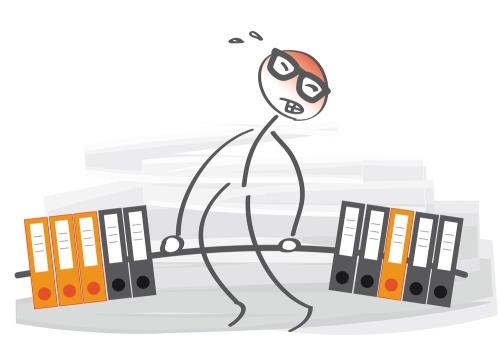06 Feb 2021

By Mark Richards,
Maintaining a healthy work-life balance is difficult in any profession. Technology has blurred the lines between home and work. It’s all too easy for taking work home with us and increasingly difficult to switch off from it. The coronavirus pandemic, and the need to stay at home and work from home, has blurred the boundaries between the workplace and home further still.
But, while it’s something that certainly isn’t exclusive to the teaching profession, work-related stress is definitely something teachers know a lot about. Studies show that 67% of teachers say they feel stressed at work. Of course, given the constant scrutiny and accountability measures, excessive workloads, and the fact that teachers work more overtime than workers in any other profession or industry, this is really no surprise.
The really worrying thing about all this is just how commonplace and normalised stress, clinical anxiety, and depression have become in a school setting.
Recognising the risk of teacher burnout
Teachers almost expect and even accept burnout. Teacher burnout is a very real risk. Of course, in a stressful job such as teaching, there will be certain events that trigger an increase in stress and anxiety. These include the likes of inspections and lesson observations. However, teacher burnout is something else. It’s more than having a bad lesson, day or even week. It’s when everything becomes too much for you.
The thing is that because it can be so damaging to physical and mental well-being, teachers really be should be aware of the warning signs.
Restlessness and detachment
A teacher’s work is never done. Whether you are a trainee teacher or a headteacher, one thing is true – you will always be able to find something to do. You could literally fill every minute of every day with something – and still feel that you’ve only scratched the surface.
When you are ‘on form’ you can handle this. You can accept that you can only do some much and you learn not to be too hard on yourself.
However, when burnout approaches you do not think straight. You cannot switch off. This is often accompanied by uncomfortable symptoms, such as dizziness, shortness of breath, and panic attacks.
Not only that, but feelings of detachment are often experienced too. Often a teacher approaching burnout will lose interest – either in work or everything outside of work. It becomes a perpetual vicious circle. Insomnia – another tell-tale sign of burnout – means that you are not refreshed as you should be after a good night’s sleep. This can lead to concentration problems during the day. Lessons don’t go well as you would like, and this adds to the stress. Work tasks take longer than they should, and then you can’t sleep at night. And the cycle continues.
Feelings of self-doubt
Feelings of self-doubt and inadequacy are clear warning signs of teacher burnout. In many ways, this is the cruellest symptom of all about burnout. Despite dedication to the profession and the children you teach being essentially the cause of the burnout, teachers are left with their self-esteem in tatters.
The crucial thing is that you are alert and notice changes when they occur. Like any illness and serious condition, it’s always better to catch it in the early stages. The longer it is left undiagnosed and untreated, the more long-lasting harm it will cause.
RELATED POSTS
1- How to avoid teacher burnout
2- Professional Communities Can Reduce Teacher Burnout
3- Was the Coronavirus lockdown an opportunity to reduce teacher workload in the long term?
4- 5 Fantastic Tips for Educators on Managing Workload
5- What can be done about the teacher workload crisis?
We encourage our readers to share their knowledge.
Do you have an idea, view, opinion or suggestion which would interest others in the education sector?
Are you a writer? Would you like to write and have your article published on The Educator?
If you are connected with the education sector or would like to express your views, opinion on something required policymakers’ attention, please feel free to send your contents to editorial@theeducator.com